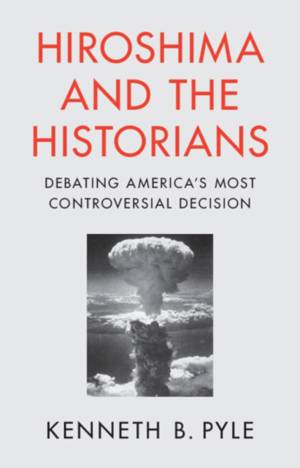
- Afhalen na 1 uur in een winkel met voorraad
- Gratis thuislevering in België vanaf € 30
- Ruim aanbod met 7 miljoen producten
- Afhalen na 1 uur in een winkel met voorraad
- Gratis thuislevering in België vanaf € 30
- Ruim aanbod met 7 miljoen producten
Zoeken
Hiroshima and the Historians
Debating America's Most Controversial Decision
Kenneth B Pyle
Paperback | Engels
€ 43,45
+ 86 punten
Omschrijving
The decision to use atomic bombs on Hiroshima and Nagasaki has been considered the most important - and perhaps most controversial - event in twentieth-century history. It ushered in many of the major developments of our time: the end of World War II, the beginning of the atomic age, the establishment of the American world order, and the start of the Cold War arms race. Kenneth B. Pyle illuminates both the complexities of the event itself and the debates among historians that continue today, as they wrestle with the moral issues of the decision, its necessity and its alternatives. While producing no final resolution to the controversy, historians have nevertheless advanced and deepened our understanding of this event. This accessible and thought-provoking analysis is a case study in the intricate nature of the historian's craft and a reminder of the value of historians in a free society.
Specificaties
Betrokkenen
- Auteur(s):
- Uitgeverij:
Inhoud
- Aantal bladzijden:
- 286
- Taal:
- Engels
Eigenschappen
- Productcode (EAN):
- 9781009477444
- Verschijningsdatum:
- 6/06/2024
- Uitvoering:
- Paperback
- Formaat:
- Trade paperback (VS)
- Afmetingen:
- 140 mm x 216 mm
- Gewicht:
- 331 g

Alleen bij Standaard Boekhandel
+ 86 punten op je klantenkaart van Standaard Boekhandel
Beoordelingen
We publiceren alleen reviews die voldoen aan de voorwaarden voor reviews. Bekijk onze voorwaarden voor reviews.











